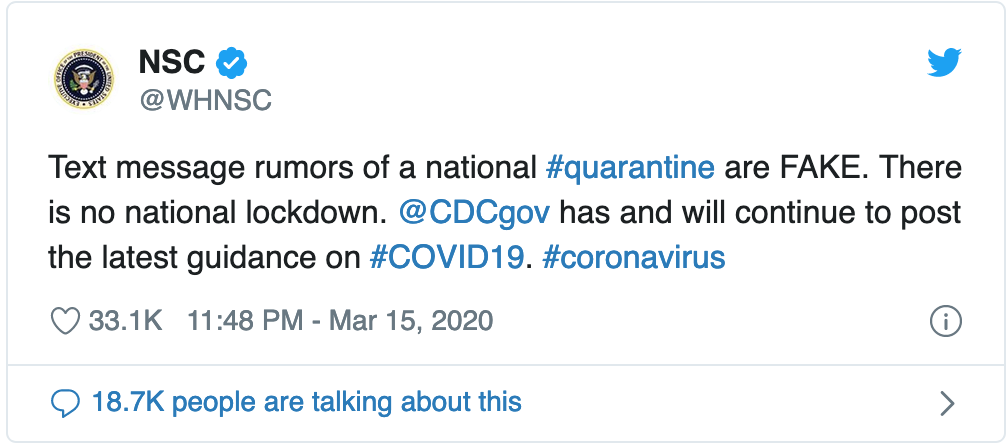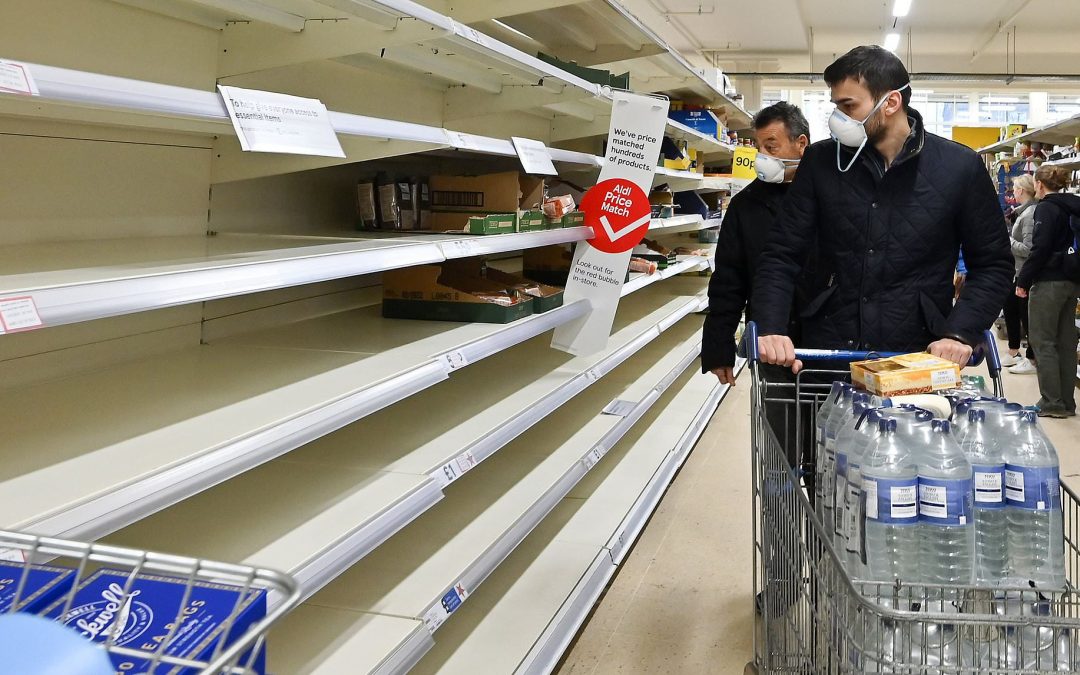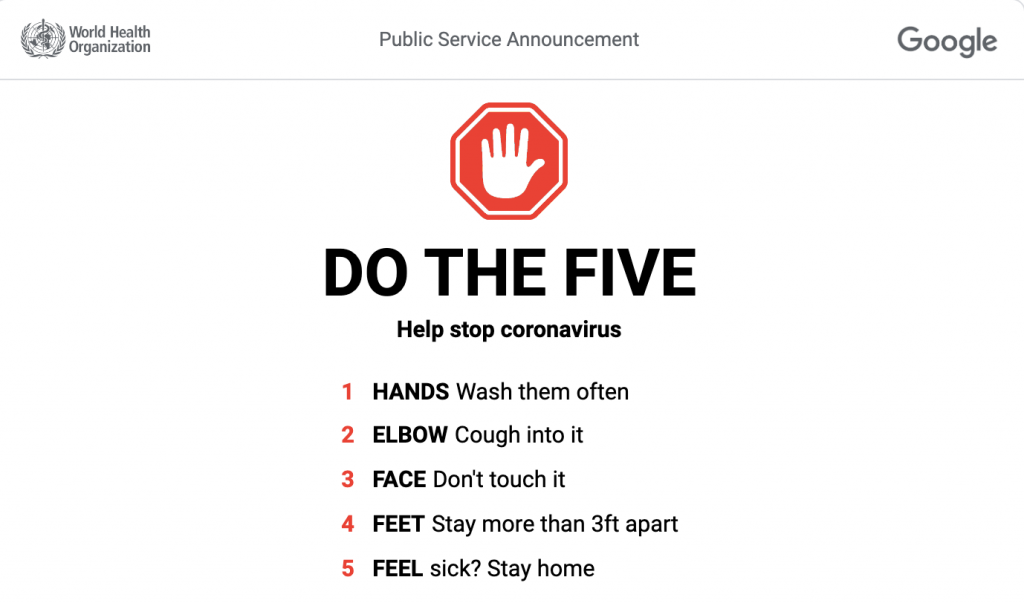While there’s no denying that coronavirus has altered our daily lives, there are several myths and misinformation circulating right now. To help keep people safe, we put together this list to help you determine fact from fiction.
FACT: It is safe to handle mail after being delivered.
One of the biggest myths surrounding coronavirus it that people should avoid handling or touching things such as mail and packages with their bare hands. While it’s not a terrible idea to wash your hands after handling mail, that’s true of virtually everything right now.
According to FOX 8 Cleveland, the USPS is sharing guidance from the U.S. Centers for Disease Control and Prevention with employees.
“The CDC said there is likely a very low risk of coronavirus spreading on packages and products shipped over several days because of the poor survivability of the virus on surfaces.”
The takeaway: if you handle something, wash your hands.
FACT: It is safe to get food from restaurants during the pandemic.
According to the Food and Drug Administration (FDA), “there is no evidence of food or food packaging being associated with transmission of COVID-19.”
In fact, the FDA confirms that the virus is thought to spread from person-to-person.
“This includes between people who are in close contact with one another (within about 6 feet), and through respiratory droplets produced when an infected person coughs or sneezes. These droplets can land in the mouths or noses of people who are nearby or possibly be inhaled into the lungs,” the FDA said. “It may be possible that a person can get COVID-19 by touching a surface or object that has the virus on it and then touching their mouth, nose, or possibly their eyes, but this is not thought to be the main way the virus spreads.”
So while the food itself shouldn’t become an issue, people should practice social distancing, frequent handwashing, and other good hygiene habits.
FACT: It is unnecessary to stockpile groceries and other goods.
The simple answer is that it not only isn’t necessary, stockpiling actually contributes to more panic.
“You do not need to rush in and clear the shelves, the stores will remain open. In fact, rushing to the store and hoarding goods is exactly what you shouldn’t do,” said News 5 Cleveland.
But, that doesn’t mean you should be unprepared.
“All homes should be prepared with – but not hoard or stockpile – a sufficient amount of key household items and groceries in case they need to stay home for a period of time,” Dr. Chloë E. Nunneley, a resident in the ABC News medical unit, explained.
Lastly, the National Grocers Association said there is “absolutely no concern” about running out of food – something Ohio Lt. Gov. Jon Husted reiterated.
“You’re going to have access to the essentials of life,” he said.
FICTION: The National Guard is deploying to enforce a national quarantine.
Fake text messages, emails, and more have been making their rounds about the National Guard preparing for a national lockdown. But according to officials, there are no plans to deploy the National Guard in response to the coronavirus crisis.
But that doesn’t mean that it isn’t prepared.
“The National Guard is always available,” Ohio Gov. Mike DeWine said. “When it’s time — if it’s time — for the National Guard to be involved in anything, any kind of emergency, then certainly they’re well prepared and they will do that.”

FICTION: Wearing a facemask will prevent me from getting the virus.
The Center for Disease Control and Prevention (CDC) simply does not recommend facemasks unless symptoms of COVID-19 are present.
“CDC does not recommend that people who are well wearing a facemask to protect themselves from respiratory illnesses, including COVID-19,” said the health protection agency. “You should only wear a mask if a healthcare professional recommends it. A facemask should be used by people who have COVID-19 and are showing symptoms. This is to protect others from the risk of getting infected.”
FICTION: Holding your breath without coughing means no infection
A social media hoax claims if you take a deep breath and can hold it for more than 10 seconds without coughing you’re in the clear. There is, however, no evidence to support this.
“To start, according to the American Lung Foundation, lung fibrosis is scarring of the lung and can occur due to infections, medications, genetics or certain diseases,” said News 5 Cleveland. “Being unable to hold your breath for more than 10 seconds without coughing may occur when you have fibrosis, but a diagnosis is much more complicated than this.
The bottom line is to not believe everything you see and verify the validity. It’s also important to practice caution and good hygiene during this health pandemic.
Sure, there are things to be concerned about. There are things to be frightened of. But overreaction and panic can genuinely lead to worse situations.
Perhaps the best advice to follow right now is the World Health Organization’s and Google’s Do the Five public campaign.
- HANDS: Wash them often
- ELBOW: Cough into it
- FACE: Don’t touch it
- FEET: Stay more than 3ft apart
- FEELsick? Stay home
And remember, call your doctor if you think you have been exposed to COVID-19 or develop a fever, cough, or difficulty breathing.
Coronavirus myths have been spreading fast and furious. Make sure to always fact check your sources before sharing them with friends and family.
Have you heard other coronavirus myths or hoaxes? Share them in the comments!


